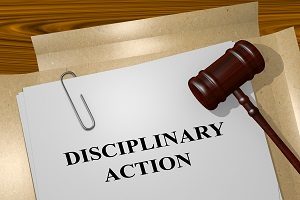Anybody who lives in a planned community most likely is part of a homeowners association which requires members to pay fees. The fees cover the day-to-day operating expenses of the community. Unfortunately, the regular dues don’t always cover all of the association’s expenses, especially if there are unexpected costs that the reserves can’t account for. This is where HOA special assessments come in.
Understanding HOA Special Assessments
To long-time members of homeowners associations, special assessments aren’t anything new. The need for them arises every now and then, especially in times of disaster or emergency. However, if you’re relatively new to the HOA scene, you may get confused. Why would an association charge you a special assessment on top of monthly fees? Shouldn’t an HOA have a reserve fund to cover unexpected expenses?
What are HOA assessments? Before getting into that further, it is important to understand how HOAs form their budget and how they receive their money.
How HOAs Form Their Budget
 Every year, the board will craft a community budget that includes how much each household must pay in monthly HOA dues. These dues will go to two separate areas of the budget.
Every year, the board will craft a community budget that includes how much each household must pay in monthly HOA dues. These dues will go to two separate areas of the budget.
Most of it will help the HOA cover the current year’s operating expenditures. This can include budget items like landscaping, pool maintenance, playground maintenance, insurance, and so forth.
The rest of the dues will go into the reserves, which is a part of the budget set aside for long-term repairs and replacements. This can include roof replacement for the community clubhouse or the cost of repaving the roads. The reserves also cover unforeseen costs that the association can’t plan for.
HOAs need to have a solid amount of money saved away in the reserves. Not all expenses can be foreseen, but most can. The board needs to plan 3, 5, or even 10 years in advance to plan for future repairs, maintenance, and other costs. Unfortunately, if the reserves don’t cover all of these costs, an HOA special assessment may be necessary.
What is an HOA Special Assessment?
Budget shortfalls, unfortunately, are a reality that many HOA boards face. Your monthly HOA fees may adequately cover the costs of a regular landscaping service to maintain the community lawns. Paying for the removal of a fallen tree, for example, is likely not part of that allocation. Since these occurrences are the exception rather than the norm, HOA boards may decide to vote to collect a one-time, special homeowners association fee to cover this sudden expense.
 As you may have figured out by now, an HOA special assessment is an extra fee an association may charge homeowners in case reserve funds are insufficient. There are a few possible reasons why your HOA might impose a special assessment:
As you may have figured out by now, an HOA special assessment is an extra fee an association may charge homeowners in case reserve funds are insufficient. There are a few possible reasons why your HOA might impose a special assessment:
- The HOA board failed to properly calculate monthly expenses
- There is a budget deficit brought on by some homeowners defaulting on their monthly dues
- Unforeseen repairs are needed due to a natural calamity that the association’s insurance does not cover
- Some amenities or fixtures require upgrading or replacing
- The addition of new community amenities
As for the difference between regular vs special assessment, the former is the computed monthly dues homeowners pay for the year. As stated above, these monthly dues are budgeted by the HOA board. A special assessment, on the other hand, occurs sporadically, which means homeowners don’t pay them on a monthly basis. They cover special needs, as opposed to regular assessments, which cover day-to-day expenses.
Understanding Regular HOA Dues
 The current year’s operations cost will usually include things maintenance and clean-up services that benefit the community as a whole. This will typically include things like lawn care, landscaping, snow removal, or pool maintenance. Part of the current year operating budget also covers the utilities used by community amenities and includes things like water, power, and insurance.
The current year’s operations cost will usually include things maintenance and clean-up services that benefit the community as a whole. This will typically include things like lawn care, landscaping, snow removal, or pool maintenance. Part of the current year operating budget also covers the utilities used by community amenities and includes things like water, power, and insurance.
Common area upkeep is one of the most visible ways for homeowners to really feel that their HOA fees are going towards the benefit of the community. When HOA dues go towards common areas like clubhouses and community pools, the more that the homeowners feel that their contributions are worth it. The building and maintenance of these common areas are an important part of the current year operating budget so that everyone can enjoy them.
Part of the regular HOA dues, the ones that are not already earmarked for the current year’s operations, then go into reserves. Maintaining a healthy reserve budget is important for the community since these funds enable the community to plan long-term. With a good amount under the reserve budget, the HOA can pay for things like new roads, an expansion of the community center, or a boiler replacement for the community pool.
The reserve budget also helps to give the community peace of mind, since having a nice amount of reserve gives the HOA the ability to do high-cost repairs or replacements if the need suddenly arises.
Why Special Assessments are Necessary
Even if there are some unexpected expenses, or perhaps a sudden drop in the HOA fees collected, it’s likely that the reserve fund should cover the shortfall for a time. Things don’t always go perfectly right in a community, though, and sometimes, something comes up that will cost the board more than what can be raised by the monthly HOA dues. It might be the case of the board not having a good prediction for their budget that year.
The board can plan all they want, but sometimes, their predictions are not accurate. If an HOA needs to come up with additional funds to cover an unfunded expense, the board of directors has the power to levy a special assessment to pay for the expense of a major repair or improvement.
Without special assessments, amenities and fixtures may stay in disrepair and continue to deteriorate with time. Expenses will not be covered, resulting in community-wide inconveniences and complaints. Members of the HOA board will have to deal with these complaints on a daily basis. Homeowners, on the other hand, will have to endure these nuisances.
Common Reasons for an HOA Special Assessment
 There could be one or more reasons why the monthly HOA fees and the reserves might not prove enough to cover a large repair or replacement item. Can HOA increase fees to cover these? Even if the HOA board is allowed to raise HOA dues in the middle of the year, an HOA assessment still provides a more timely solution.
There could be one or more reasons why the monthly HOA fees and the reserves might not prove enough to cover a large repair or replacement item. Can HOA increase fees to cover these? Even if the HOA board is allowed to raise HOA dues in the middle of the year, an HOA assessment still provides a more timely solution.
There are three common causes for a shortfall like these, where an HOA assessment will prove most useful.
1. Budgetary Issues
The operating expenses for this month could have exceeded the expected rate for the year. The community may have needed to switch to a different service provider for their maintenance and repairs, and they could have ended up having to pay a different rate. Other expenses, like utilities, insurance, and other fees, may have gone up that month as well. These and other spending spikes may prove to be too much of a drain for an HOA budget, leaving little to no room for a major repair item.
2. Unpaid Dues
The proceeds from the monthly HOA dues may have been below target for the month. Some homeowners may not have been able or were not willing to pay their share of monthly HOA fees. With not enough collection, the HOA board may be pressed to consider a homeowners association assessment to cover a sudden expense.
3. Emergencies
A natural or man-made disaster may have affected the community. While most of the damages may be covered by insurance, it may still fall on the HOA board to come up with a budget to completely restore damaged facilities.
How Often Should You Charge a Special Assessment?
The short answer is: Rarely.
HOAs should budget for emergencies and big projects in such a way that they have sufficient funds in their operating budget to cover the year’s expenses and sufficient funds in their reserves to cover repairs and emergencies. If an HOA MUST charge a special assessment, the question then becomes: How long of a period should we collect the special assessment over. Not all homeowners can afford a 1 time Special Assessment of $1,800 due in 30 days. The Board of Directors might consider lengthening the time frame to $150/month for 12 months.
It would be optimal to ask for expert professional advice from a Community Manager or HOA Attorney that the HOA is working directly with.
Are HOA Special Assessments Legal?
 Simply put, yes. Special assessments are legal, and HOAs do have a right to charge them to homeowners. However, there are limitations. The HOA’s governing documents contain everything you need to know about your association’s rules on special assessments.
Simply put, yes. Special assessments are legal, and HOAs do have a right to charge them to homeowners. However, there are limitations. The HOA’s governing documents contain everything you need to know about your association’s rules on special assessments.
Homeowners must read the CC&Rs carefully, as they usually stipulate the conditions in which the association can levy this type of fee. Most documents, however, are vague in their wording. This is done intentionally to give HOAs a wider range of power when it comes to charging special assessments for unforeseen needs.
In many HOAs, the governing documents will also include procedures the board must follow in case of special assessments. This can be a voting requirement to approve the assessment or when to notify homeowners of the charge.
You may also look to any state or local laws that apply. For instance, in California, according to the California Civil Code §5605(b), an HOA can’t levy special assessments “which in the aggregate exceed 5 percent of the budgeted gross expenses of the association for that fiscal year without the approval of a majority of a quorum of members.”
According to Section 209.0051 of the Texas Property Code, an HOA board must discuss or vote on charging special assessments in an open board meeting. An open board meeting is a meeting that all community members can attend. The board must provide prior notice to all owners of this meeting first.
Consequences of Refusal to Pay
 Sometimes, an HOA special assessment can seem unreasonable or unjustified, leading some homeowners to default on the payment. When this happens, homeowners can expect consequences.
Sometimes, an HOA special assessment can seem unreasonable or unjustified, leading some homeowners to default on the payment. When this happens, homeowners can expect consequences.
What the HOA can do as a response to unpaid special assessments is usually outlined in the governing documents. Typically, HOAs can levy late fees or fines against you.
They can also restrict your use of common areas and amenities until you’re fully paid. In more serious cases, the HOA can even place a lien on your property or take you to a small claims court.
While this may all seem unfair, as long as the HOA is acting within the law and its governing documents, there’s not much you can do. After all, as a homeowner in the development, you have an obligation to pay your share of the dues. This means paying the special assessment fee for a new fitness center even if you don’t plan on using it.
What are HOA Assessments? Answered!
When it comes down to it, certain situations do give rise to HOA special assessments. You may not like the amount or even what the assessment is for, but your responsibility as a property owner is to pay your portion of the expenses. Special assessments aren’t necessarily bad. They exist in the community’s best interest.
The money will go to the betterment of the community anyway, so it would be best to comply. After all, no one wants to live in a rundown community with dilapidated amenities.
Even with a clear understanding of special assessments, many associations still turn to HOA management companies for assistance. Whether you need help with procedures, estimations, or collection, don’t hesitate to give us a call.
RELATED ARTICLES:
- What Are HOA Assessments And What Is It Used For?
- Can Homeowners Association Raise The Fees?
- The Pros And Cons Of Low HOA Fees






